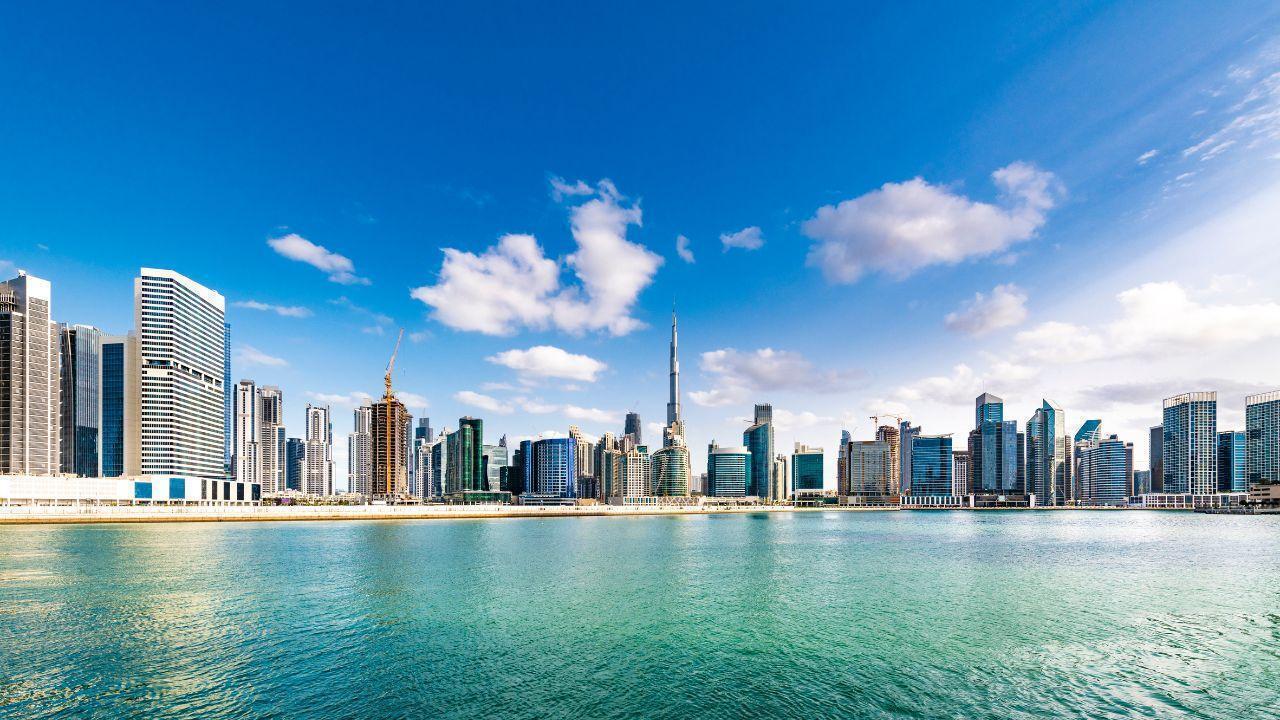
Recent scientific research has raised alarm bells about the alarming frequency of deadly ocean upswells, driven by the ongoing climate crisis. As global temperatures rise and weather patterns shift, the effects on our oceans are becoming increasingly pronounced. Study warns deadly ocean upswells increasing due to climate crisis sheds light on the consequences for marine ecosystems and coastal communities alike. Understanding this phenomenon is crucial for everyone, from policymakers to everyday citizens.
To grasp the severity of this issue, we first need to understand what ocean upswells are. Upswelling occurs when deep, nutrient-rich waters rise to the surface, often as a result of wind patterns or ocean currents. This natural phenomenon is essential for marine life as it brings nutrients to the surface, supporting phytoplankton growth, which forms the foundation of the ocean food web. However, when these upswells become increasingly frequent or intense, they can lead to dangerous conditions, particularly in the context of climate change.
The study warns deadly ocean upswells increasing due to climate crisis highlights how climate change is altering ocean temperatures, currents, and overall health. Warmer water temperatures can lead to stratification, where the upper layer of the ocean becomes less dense than the deeper layers, inhibiting the natural upwelling process. This results in fewer nutrients reaching the surface, ultimately affecting marine ecosystems.
Moreover, the warming climate contributes to extreme weather events, such as hurricanes and storms, which can disrupt typical ocean patterns. These disruptions can trigger increased upwelling, leading to higher concentrations of harmful algae blooms and decreased oxygen levels in the water.

One of the most concerning outcomes of increased ocean upswells is the impact on marine life. As nutrient levels fluctuate, the balance of the marine food web is disrupted. Species that depend on stable conditions, such as fish, crustaceans, and marine mammals, may struggle to survive. For example, fish populations that rely on phytoplankton for food may decline, leading to a ripple effect throughout the ecosystem.
Additionally, the rise in harmful algal blooms—often fueled by excess nutrients from upswelling—poses a significant threat to marine organisms. These blooms can produce toxins that harm fish and other wildlife, and even affect human health through contaminated seafood. Communities that rely on fishing for their livelihoods may find themselves facing dwindling stocks and health risks, making the situation even more dire.
The ramifications of increased ocean upswells extend beyond marine life; they also significantly impact coastal communities. Many areas depend on healthy oceans for tourism, fishing, and recreation. As fish populations decline and harmful algal blooms become more prevalent, the economic viability of these industries is threatened.
Moreover, coastal communities are often on the front lines of climate change, facing rising sea levels and increased storm intensity. As study warns deadly ocean upswells increasing due to climate crisis indicates, the combination of these factors can lead to significant challenges for local economies and public health.
Addressing the issues related to increasing ocean upswells requires a multifaceted approach. Here are some strategies that can be employed to mitigate the impact of climate change on our oceans:
Reduce Greenhouse Gas Emissions: The primary driver of climate change is greenhouse gas emissions. Transitioning to renewable energy sources, improving energy efficiency, and reducing reliance on fossil fuels are essential steps in combating climate change.
Implement Sustainable Fishing Practices: Overfishing exacerbates the problem by putting additional stress on already vulnerable marine ecosystems. Promoting sustainable fishing practices can help preserve fish populations and ensure long-term economic viability for coastal communities.
Invest in Marine Conservation: Protecting marine habitats, such as coral reefs and mangroves, can help support healthy ecosystems that are more resilient to changes in ocean conditions. Establishing marine protected areas (MPAs) is one way to safeguard these vital habitats.
Enhance Climate Adaptation Plans: Coastal communities should develop comprehensive climate adaptation plans that address the unique challenges posed by climate change. This includes improving infrastructure, investing in early warning systems for extreme weather events, and promoting community awareness about the importance of marine health.
Encourage Research and Monitoring: Continued research on ocean conditions and climate change is crucial for understanding how to mitigate these issues. Monitoring programs can help track changes in ocean temperatures, currents, and marine life, allowing for timely responses to emerging threats.
A recent study warns deadly ocean upswells increasing due to climate crisis. This means that our oceans are changing because of climate change, which can make ocean upswells happen more often. Ocean upswells bring nutrients to the surface, helping fish and other marine life. But when these upswells increase, they can lead to problems like harmful algae blooms and fewer fish. This is bad for marine animals and people who rely on fishing for their jobs. The study warns deadly ocean upswells increasing due to climate crisis shows how important it is to take care of our oceans. By working together, we can reduce climate change and help keep our oceans healthy.
This article is provided by DXB News Network and is meant for informational purposes only. The study warns deadly ocean upswells increasing due to climate crisis highlights an important issue affecting our oceans. While we aim to provide accurate information about climate change and its impact on ocean upswells, the situation may change over time. Readers are encouraged to stay informed and take action to help protect our oceans and marine life.
Ocean upswells are natural processes where deep, nutrient-rich water rises to the surface, bringing essential nutrients to support marine life, especially phytoplankton.
The study warns deadly ocean upswells increasing due to climate crisis indicates that climate change is causing warmer ocean temperatures and changing weather patterns, which can increase the frequency and intensity of upswelling.
Increased ocean upswells can lead to harmful algal blooms, decreased oxygen levels, and disrupted marine ecosystems, ultimately threatening fish populations and coastal communities.
Harmful algal blooms can produce toxins that harm marine life, pose health risks to humans, and negatively impact industries like fishing and tourism.
To address these issues, we can reduce greenhouse gas emissions, implement sustainable fishing practices, invest in marine conservation, and develop climate adaptation plans.
ocean upswells, climate crisis, study warns, deadly ocean upswells, increasing upswells, nutrient-rich waters, harmful algal blooms, marine ecosystems, coastal communities, greenhouse gas emissions
#trending #latest #OceanUpswells #ClimateCrisis #StudyWarns #DeadlyOceanUpswells #IncreasingUpswells #NutrientRichWaters #HarmfulAlgalBlooms #MarineEcosystems #CoastalCommunities #GreenhouseGasEmissions #breakingnews #worldnews #headlines #topstories #globalUpdate #dxbnewsnetwork #dxbnews #dxbdnn #dxbnewsnetworkdnn #bestnewschanneldubai #bestnewschannelUAE #bestnewschannelabudhabi #bestnewschannelajman #bestnewschannelofdubai #popularnewschanneldubai

Sheikh Dr. Sultan bin Mohammed Al Qasimi, Ruler of Sharjah, has issued an Emiri Decree to establish and organize the Sharjah Creative Quarter (SCQ)...Read More.

Ruling BJP and allies proposed 23 changes to the Waqf Amendment Bill, while the opposition suggested 44, but none were accepted...Read More.
 Taylor Swift Stuns in ₹4.5 Lakh Louis Vuitton Jacket at Travis Kelce's Match
Taylor Swift Stuns in ₹4.5 Lakh Louis Vuitton Jacket at Travis Kelce's Match
Taylor Swift's Louis Vuitton jacket stole the spotlight as she cheered for boyfriend Travis Kelce du
 Gulf Giants Secure Six-Wicket Victory Over Sharjah Warriorz
Gulf Giants Secure Six-Wicket Victory Over Sharjah Warriorz
Tom Alsop played a brilliant knock, scoring an unbeaten 85 to lead Gulf Giants to a stunning six-wic
 Dubai's Real Estate Market Stays Among the World’s Best: Hamdan bin Mohammed
Dubai's Real Estate Market Stays Among the World’s Best: Hamdan bin Mohammed
Dubai’s real estate sector sees AED761B in transactions and 2.78M procedures in 2024
 Tamer Ashour & Adam to Perform at Al Majaz Amphitheatre on February 15
Tamer Ashour & Adam to Perform at Al Majaz Amphitheatre on February 15
Tamer Ashour & Adam to perform at Al Majaz Amphitheatre on Feb 15, promising a captivating night
 Keys Stuns Sabalenka to Win First Grand Slam Title
Keys Stuns Sabalenka to Win First Grand Slam Title
Madison Keys defeated top seed Aryna Sabalenka 6-3, 2-6, 7-5 to win her first Grand Slam title at th
Sharjah Ruler Approves Creation of Sharjah Creative Quarter

Sheikh Dr. Sultan bin Mohammed Al Qasimi, Ruler of Sharjah, has issued an Emiri Decree to establish and organize the Sharjah Creative Quarter (SCQ)
2 Non-Muslim Members Among 14 Changes in Waqf Amendment Bill

Ruling BJP and allies proposed 23 changes to the Waqf Amendment Bill, while the opposition suggested 44, but none were accepted
Exploring Dubai's Art and Culture Beyond the Skyscrapers

Discover Dubai's vibrant art and culture beyond its famous skyline.
Drug Kingpin Arrested After Wife's Social Media Reveals Location

Rodriguez shared photos at landmarks like the Eiffel Tower and Trevi Fountain, attracting DEA agents monitoring the couple's online movements
Thousands Return to North Gaza for 1st Time Since War as Israel Opens Crossings

After news of open crossings, tens of thousands of Gazans started walking north on Monday morning, carrying their belongings
Taylor Swift Stuns in ₹4.5 Lakh Louis Vuitton Jacket at Travis Kelce's Match

Taylor Swift's Louis Vuitton jacket stole the spotlight as she cheered for boyfriend Travis Kelce during the AFC Championship game
Anushka Sharma Stuns in Yellow Lehenga Worth ₹1.6 Lakh

Anushka Sharma is radiating elegance in her yellow lehenga designed by Mahima Mahajan. The stunning outfit exudes royal charm and costs ₹1.6 lakh, leaving every
Palestinian Voices Shine at Sundance Film Festival 2025

Palestinian-American director Cherien Dabis, set to shoot her personal drama *All That’s Left Of You* in the West Bank, was forced to reconsider her plans after
Colombia Reverses Deportation Decision After Trump’s Threats

Colombia agrees to accept deported citizens after Trump's tariff threat on Sunday, reversing defiance to US plans
From Underdogs to Winners: Amazing Comebacks in Sports

Discover inspiring sports comebacks where underdogs triumphed
3001E, 30 Floor, Aspin Commercial Tower, Sheikh Zayed Road, Dubai, UAE
+971 52 602 2429
info@dxbnewsnetwork.com
© DNN. All Rights Reserved.